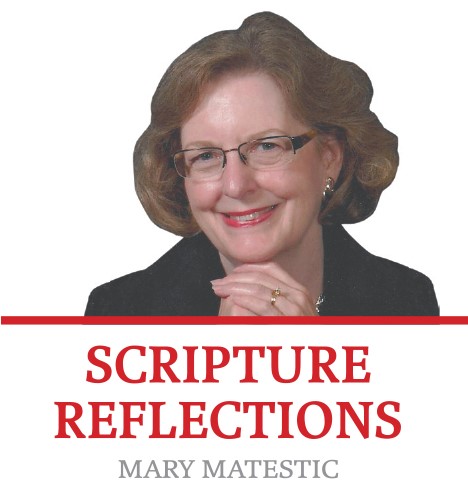Scripture Readings, March 27, 2022
March 27, 2022
Fourth Sunday of Lent
Joshua 5:9a, 10-12
Psalms 3:2-3, 4-5, 6-7a
2 Corinthians 5:17-21
Luke 15:1-3, 11-32
Countless times in our lives we have heard the story of the Prodigal Son, probably one of the most used parables Jesus told because it is layered with things humanity is not good at: forgiveness and mercy. A wealthy father has two sons, and one of them is a real rogue. He is eager to leave his home, and he obviously has saved nothing for his dream. He has the audacity to ask his father for his share of his inheritance (approximately one-third of everything the father owns) in order to “see the world.” He has a strong sense of material well-being but has not thought much about his dignity. The worst part of it is the son completely disregards his father’s well-being, for the inheritance money was for his father’s sustenance while alive.
Here we have an early picture of what we now call “entitlement.”
Yet, the father gives his son what he wants even without caution. The son goes far away and squanders his inheritance — no vision for the future, no responsibility for his life beyond the immediate. One day he awakens to the fact that he has nothing more to spend. He is hungry but fears he has burned his bridges behind him. So, the son creates this scenario of repentance, not because he loves his father or because he is sorrowful necessarily, but because he is hungry. Well, minimal as the motive is, it gets him back on the road home.
Shockingly, where is his father in all of this? Waiting and watching for his son to return.
And the older brother? Well, it doesn’t take a rocket scientist to know he has major jealousy problems. Whether or not he attended his brother’s “coming home” party, we will never know.
If this were my family, I would have thrown myself on the couch in tears asking God: “What did I do wrong?”
Jesus tells the story for that very reason, it is an imperfect family with spoiled and selfish kids. A cross section of humanity lives in this household. There are servants around, there is land and cattle aplenty — everything one needs for happiness. Yet, there is no happiness, save for in the father, who responds to both with love and mercy. One son is self-indulgent. The other is self-righteous. Both are perfect candidates for God’s beautiful mercy embodied in the father.
Lest we crawl too far into the judgment seat, it is important to look at mercy in its fullest expression. The word mercy never appears in the parable, but it shines everywhere as this profound drama plays out between the father’s love and the son’s dissolute life. Pope John Paul II, in his letter Dives et Misericordia, says, “The parable indirectly touches upon every breach of the covenant of love, every loss of grace, every sin. In this analogy, there is less emphasis than in the prophetic tradition on the unfaithfulness of the whole people of Israel.”
And yet, that comparison exists. Desperation escalates as the chasm grows greater between the unfaithful people of God and God. We can hear echoes of our Lenten song: “Come back to me, with all your heart, don’t let fear keep us apart.”
The encyclical continues to say that the son’s physical needs turn quickly toward his interior life. In losing his material goods, he becomes aware of the loss of his dignity. He is willing to return as a servant in his father’s house. Pope John Paul II continues, “Through the complex material situation in which the prodigal son found himself due to his folly, because of sin, the sense of lost dignity had matured. He will return as a hired servant, a place of profound humility. Underneath it all, there is an implicit trust in the father, that he will take the son back, even as a servant.”
The son must look into the eyes of his father and see there only love, only mercy, which will be convicting enough. “The father to the prodigal son is faithful to his fatherhood, faithful to love which he will lavish upon his son.” He manifests that fidelity not only by welcoming his son home without any punitive intentions, but with the joy of celebration. “Kill the fatted calf, set out a feast, for my son was lost and now he is found.”
Of course, the analogy in the parable is clear. The father’s love for his son is analogous to God the Father’s love for each of us. God sees the essence of good, which lives in every person, bringing each of us into that relationship of mercy. When we are looked upon with great mercy, then we are on the cusp of conversion. Pope John Paul II says, “Conversion is the most concrete expression of the working of love and of the presence of mercy in the human world … mercy is manifested in its true and proper aspect when it … promotes and draws good from all the forms of evil existing in the world and in humanity.”
Mercy, then, continues the fundamental messianic message of Christ and his mission. Mercy overcomes evil with good, a good reason to continue to read and reflect upon this most telling parable.

